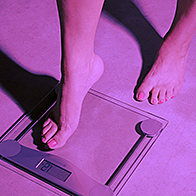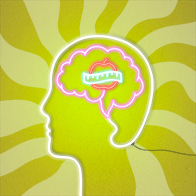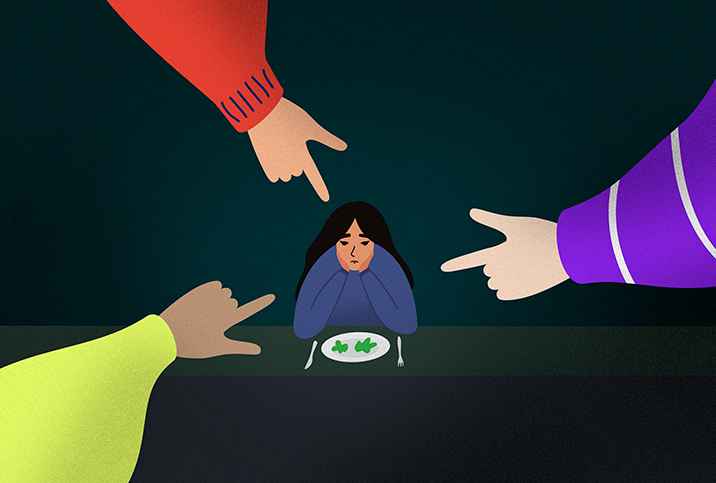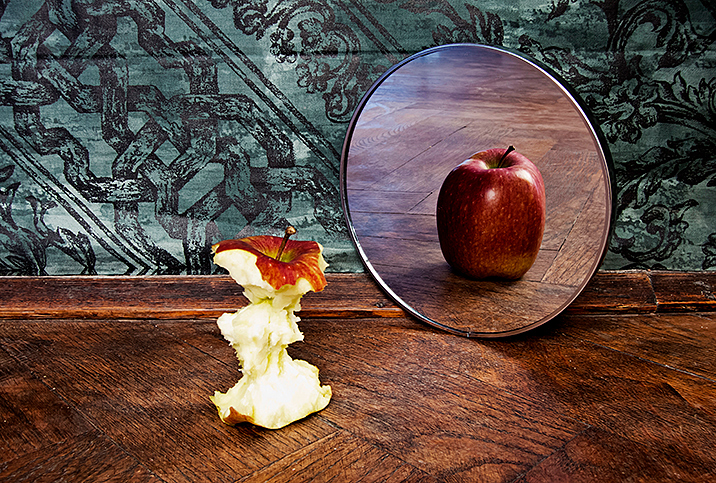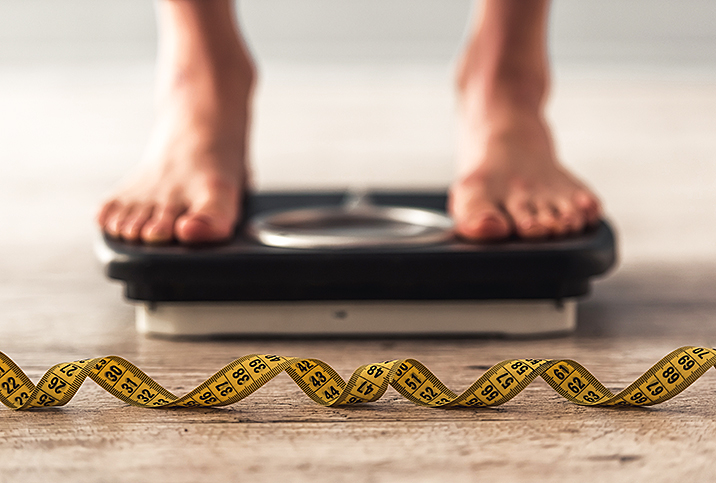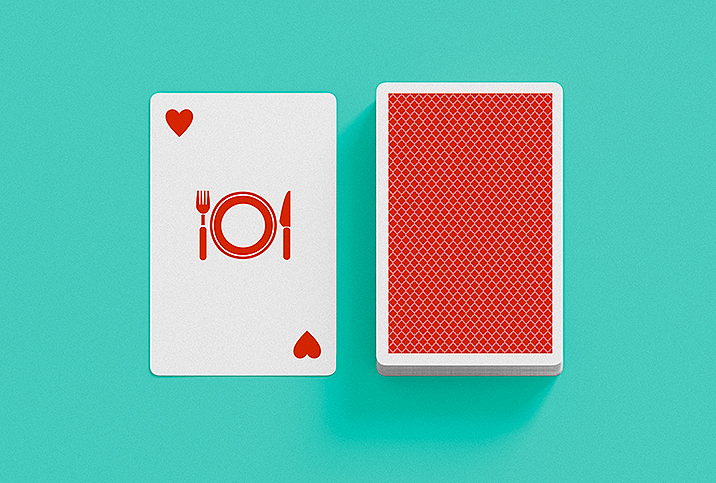My Journey With an Eating Disorder

There are all kinds of ways you can help someone with an eating disorder—you may have seen some of the events for National Eating Disorders Awareness Week organized by the National Eating Disorders Association in February. Having an appreciation and understanding of what it's like to have an eating disorder is a good first step. While this step can't possibly compare to living with it or having a loved one who lives with it, maybe reading my story will help.
And so it began
When I was 13, I was diagnosed with anorexia nervosa with a purging subtype. Though my primary symptoms look like anorexia, I also experience intermissions of binging and purging resembling bulimia. I sardonically call it the worst of both worlds. It's been a part of me for so long, I often can't fathom a time when eating disorder thoughts—what I call "the Voices"—weren't there.
At my lowest weight, I was so emaciated, the anorexia became terminal. I was given less than a week to live. I experienced numerous medical complications, including electrolyte imbalances, ketonuria, bradycardia and cardiac muscle loss, which sent my already fearful care team into a panic. I was admitted to the adolescent residential unit at an eating disorder facility, where I was an inpatient for the four most arduous months of my life.
That first night in particular still haunts me.
The facility looked more ominous in person than online. Maybe it was the threat of what it represented. Going inside, my chest felt tight. Every molecule was on edge, ready to run, run, run at a moment's notice.
The decor was underwhelming. Nothing particularly stood out to me because once I was led down the main hallway, the only thing I saw was a plate of steaming food (oh, God, it smelled so good, but don't even think about it) on the table. It took three seconds to process that it was for me and I was seized by the worst panic I've ever experienced. My head shrunk and the walls closed in. Voices became muffled and faded into the background. Everything became centered around the food. It took on a halo effect with which I was morbidly fascinated.
Meanwhile, everything in me screamed "No!" and my whole body protested. The staff and I sat there for hours, long after my dinner had lost its steam and halo effect. After they threatened to get an ambulance, I ate the most gruesomely glorious meal I had ever had.
Some days are easier, and others you feel like you're back where you started, but the most important thing is to keep going.
With every bite, my already too-heavy sense of shame grew and anguish deepened past the point I thought possible. My world flipped on its axis. In a few short hours, I unraveled years of what I considered my work. I exhausted myself crying and forcing myself through the meal. Stab food, glare/gaze at each mouthful, check to see if I still have to do this, begrudgingly masticate and force myself to swallow, feel like my throat was full of lead, hate myself even more because it tasted so good.
It was like having food for the first time. My taste buds exploded with flavors I'd forgot existed and set off technicolor spectacles in my mind. It was sensory overload combined with a despair I felt grow with each swallow of food I swore I'd never touch again. Every bite chipped away at the effort I'd made to lose weight. Every bite brought back taunts—real and imagined—I couldn't ignore, along with personal betrayals of my friends and boyfriend. Every bite renewed the loathing for myself. All of it piled up in perfect synchronicity with every bite.
The Voices reached a deafening shriek, and what I thought was an impossible volume grew louder. I was reduced to a robotic state; there was too much happening to process. I've never felt such shock and overstimulation to my system.
After finally completing the meal, I found myself facedown, sobbing like a madwoman, a loop of "It was all for nothing" running endlessly in my head. I was inconsolable, beyond repair. I don't even think I would have recognized myself. I felt hollow, raw pain, like someone had ripped my insides out.
By bedtime, I was drained in every way possible and in others that didn't seem possible. In a room so cold and foreign, I settled myself into bed. I was shaking, shivering, and my steady stream of tears continued. I curled up on my side and hugged my pillow tightly, squeezing my eyes shut and hoping beyond hope that it was all a horrible nightmare.
Looking back today
It's hard to believe it's been 15 years since that episode. Ironically, part of me will never recover from treatment but I cannot dismiss the impact it's had on my life. I cannot regret the friendships I forged as they will be dear to me forever. I cannot deny the imperative education I received from therapy and the warped version of day-to-day life. Finally, I cannot deny that it's made me a more resilient person. I survived.
It's an extraordinary relationship, the one between the Voices and myself. No human being is so reliable and omnipresent, no relationship is this intimate, because there's no place to hide. There's no room for secrets because you're both inhabitants of the same head. Ambiguity and uncertainty aren't relevant with an eating disorder because everything is plain and simple: Obey the Voices and everything will be fine.
I still face the horribly unstable visage in the mirror, one that can be full of bony promises one day and overwhelmingly big the next. Sometimes it's not even a day apart. Sometimes it's hours. I've seen it change in minutes.
My psychology degree coursework taught me that eating disorders are the illusion of control; illusory because they distort what you see and believe. But I never had to worry about the disorder hurting me in ways I couldn't predict. I never had to worry about abandonment or feel the horrible social pressure I experience with other human beings, never had to uphold a false pretense and never, ever, had to be ashamed or embarrassed, because at the end of the day it was all just me—and there was no reason to hide from myself.
The lack of vulnerability I experienced in this dark relationship was something I came to treasure. It was my safe space, where I could finally let the tension out of my shoulders because I didn't have to think about anything else. Even if only for a while, I could shut my swarming thoughts down and focus on the concreteness of food.
I wasn't insipid enough to think I'd survive without sustenance, but I was disordered enough to not care.
There's a wonderment in self-control; that's why many seek it as a show of success. "Behold, look what I've accomplished by being disciplined!" Somewhere along the way, I mixed up self-control and obsession. You can control what you put in and take out of your body, but there comes a point where you're forced to admit you can't control the associated compulsions.
Once you've handed over the reins, the Voices clutch them like a lifeline, and a futile tug-of-war to get them back ensues. After a while, you don't want them back. Giving in is easier—anything but trying to fight the screaming, writhing, incessant Voices that only cease the disquiet when you do exactly what they say.
Standing at the crossroads
But then the day comes when it occurs to you that you're not in control at all. This day may come when your stomach growls so loud the whole room hears it, or when your throat is raw from bile and acid but you can't stop because the Voices say you're not done. It may come when you've changed your outfit for the 10th time because you looked fat from a certain angle, or when you realize you've consistently chosen your disorder over loved ones.
At that point, you've got a choice. Continue the starve-binge-purge cycle of despair, with neurotic cascades aplenty. Or see a professional, regularly implement cognitive behavioral therapy (CBT) and tell the Voices to shut up. I won't pretend it's easy or the condition magically disappears; the quest for recovery continues indefinitely. You have to work and fight every day to beat your eating disorder.
Recovery isn't about weight, it's about mindset. You have to want rehabilitation for efforts to come to fruition. It's a group endeavor, as eating disorders affect everyone around you, so creating a support system is crucial for recovery. Luckily, abundant resources are available for people impacted by eating disorders.
Some days are easier, and others you feel like you're back where you started, but the most important thing is to keep going. You have the power to beat this as much as to succumb. You alone can silence your own Voices and their infinite lies and promises of perfection that will never come. Despite what they tell you, it will never be enough.
In that silence, you'll get yourself back, stronger than before. You'll know you survived, and that's an accomplishment no one can take away. No matter how things feel or seem at the moment, there is hope.







